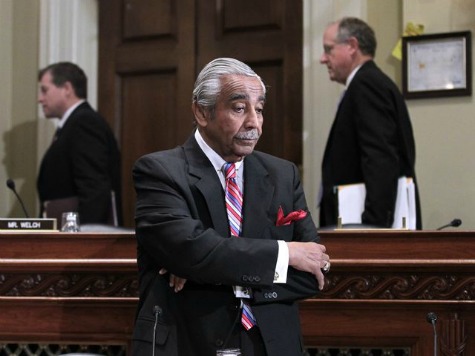
A civil lawsuit against members of the House and Congressional staff filed by Rep. Charles Rangel (D-NY) was dismissed by the U.S. District Court of Columbia on Wednesday. Rangel sued House Speaker John Boehner and other House members in April over his 2010 censure in the House of Representatives.
Rangel was censured in December of 2010 while Democrats still controlled the lower chamber after the House Ethics Committee found the New York Democrat guilty of an array of misconduct, ranging from unpaid income taxes to improper solicitation of funds. Rangel was forced to resign from his position as Chairman of the House Ways and Means Committee as a result of the decision but retained his membership on that Committee. His lawsuit claimed that following the Ethics Committee vote, he discovered some committee members had gotten improper ex parte information.
The defendants named in the suit were: (1) the current Speaker of the House, Representative John Boehner; (2) the current Clerk of the House, Karen Haas; (3) the Chairwoman of the Ethics Committee during the 111th Congress, Representative Zoe Lofgren; (4) the Ranking Member of the Ethics Committee during the 111th Congress, Representative Jo Bonner; (5) four more members of the adjudicatory subcommittee, Representatives Michael T. McCaul, K. Michael Conaway, Charles W. Dent, and Gregg Harper; and (6) three staffers who worked for the Ethics Committee during the 111th Congress, R. Blake Chisam, C. Morgan Kim, and Stacey Sovereign.
Legal Times reported in April:
The alleged misconduct “offends the view that the American system of justice requires persons sitting in the capacity of ‘judges’ in a quasi-judicial proceeding must not only avoid prejudice and bias, but must also avoid the appearance of prejudice and bias,” he said in the complaint.
A spokesperson for Boehner could not immediately be reached. Other defendants included Representative. Zoe Lofgren (D-Calif.), who served as chair of the ethics committee during the proceedings against Rangel. Rangel is represented by New York attorney Jay Goldberg.
Rangel produced a memo he claimed was sent by the ethics committee’s former staff director and chief counsel to Lofgren detailing ex parte communications between two former committee lawyers and members of the subcommittee that investigated the charges.
Rangel’s lawsuit sought a permanent injunction mandating the House to vacate his censure and delete references to it in official records. Boehner and other members responded to Rangel’s lawsuit requesting the court dismiss the case on five grounds: standing, the political question doctrine, immunity under the Speech or Debate Clause of the U.S. Constitution, failure to state a claim, and discretionary dismissal under the Declaratory Judgment Act or under the doctrine of equitable discretion.
The court granted the dismissal on the first three of those grounds and concluded:
In the end, everything on Rangel’s wish list implicates insurmountable separation-of-powers barriers to the Court’s exercise of authority. This Court is a court of limited jurisdiction under Article III, and Rangel has not properly asserted any claim within the bounds of that jurisdiction. The House has wide discretion to discipline its Members under the Discipline Clause, and this Court may not lightly intrude upon that discretion. Moreover, Members of Congress (along with their aides) are entitled to broad–although not unlimited–immunity under the Speech or Debate Clause. And perhaps most problematic is Rangel’s unprecedented view that this Court may order the House to, in effect, un-censure him. Rangel’s quarrel is with the House, and it must stay there; he may not under these circumstances enlist the Court’s involvement in that quarrel.

COMMENTS
Please let us know if you're having issues with commenting.